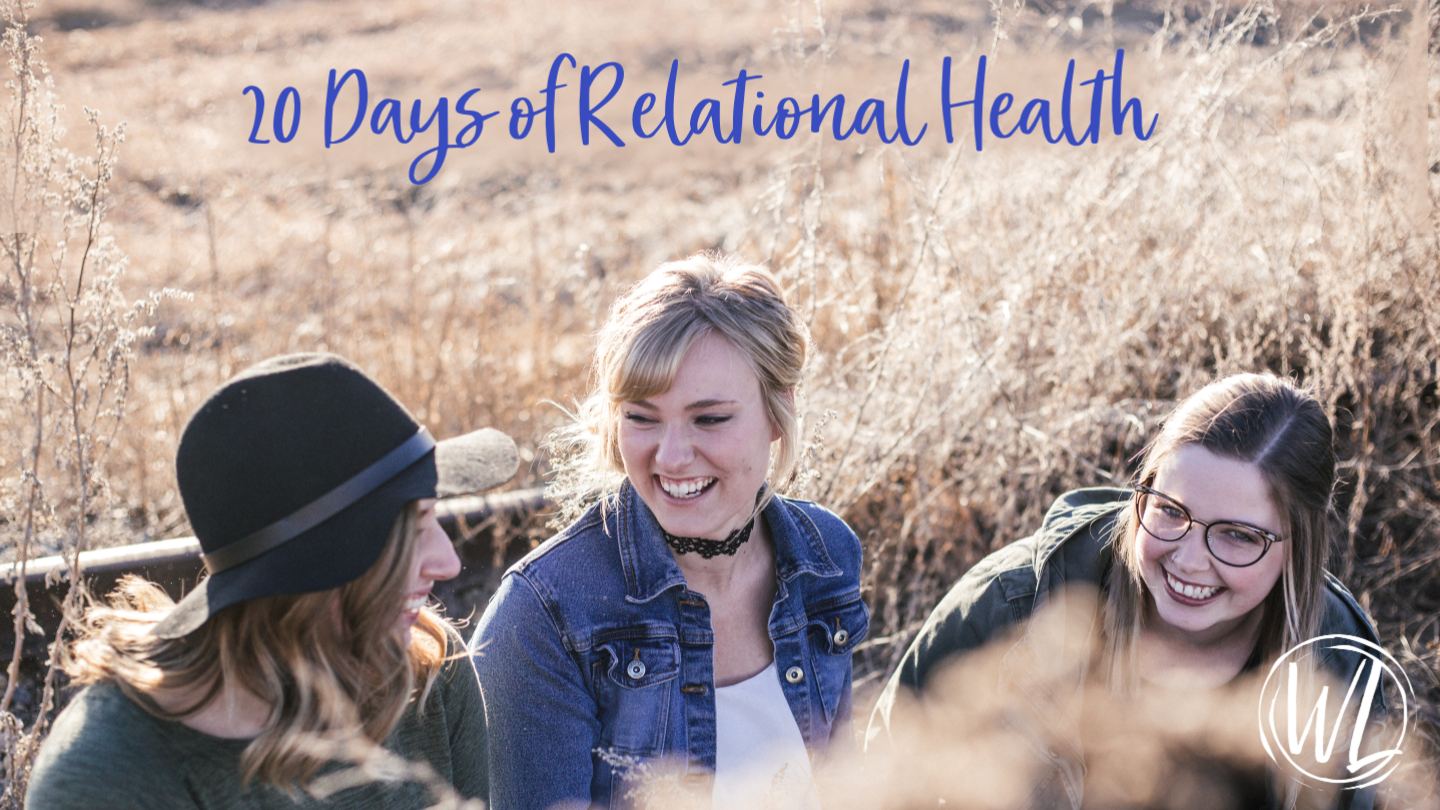Five Statements Conflict Avoidance makes

Our response to conflict can either lead to healing and deeper connections or ugliness. I’ve experienced both. Honestly, I’ve caused both. I’ve had times where fear motivated me to remain quiet when I knew God was calling me to speak. I’ve also blurted way too many statements I came to regret, many times moments after I opened my mouth. And I’ve watched God bring about incredible health––in marriages and families, ministries, churches, and communities––through Christ-centered, honest, but difficult conversations.
Whenever we separate truth and love, dysfunction and distrust grow. Plus, we miss a huge opportunity to advance Christ’s message of reconciliation. According to Steve Corbett and Brian Fikkert the reconcilation Christ offers “means putting things back into their right relationship again.[1]” Speaking on God’s desires, the authors remind us, in every interaction, “the goal is to restore people to a full expression of humanness, to being what God created us all to be, people who glorify God by living in right relationship with God, with self, with others, and with the rest of creation.”
This is, in part, what it means to act as a peacemaker––someone who actively brings shalom into every interaction. Our Christ-centered interactions also provide tangible examples of our love, commitment, and trust.
When, in our aversion to conflict, we choose self-protection over relational health, our actions speak in ways we likely didn’t intend.
Here are 5 statements conflict avoidance makes:
1. I don’t trust you.
When our fear hinders our communication, we’re in essence demonstrating our lack of trust in the other person. We either don’t trust the relationship to withstand the discussion or we don’t trust the other person to respond well. If this is the case, perhaps the best place to start is with honesty. For example, we could say, “I greatly value our relationship, and I have a fear that I might say something to jeopardize that.” Then see how the person responds.
2. I don’t truly value this relationship.
Unresolved issues tend to lead to bitterness and frustration, which in turn harm our friendships, often more than if we’d had the courage to initiate a difficult conversation.
3. I love myself more than you.
When I shy away from uncomfortable discussions, especially those involving someone else’s behavior, I 
4. I choose comfort over your and my long term growth.
I don’t like feeling uncomfortable, and I don’t always handle challenging conversations well. As a result, I’d much prefer to ignore problems when they arise. But God calls me to love with courage and self-sacrifice. If Jesus, my role model, Savior, and Lord, willingly incurred horrific abuse to bring me freedom and spiritual health and wholeness, then I can embrace personal discomfort, awkwardness, and weakness to love you well.
5. I don’t trust Jesus to actively heal and deepen our relationship.
We all make mistakes. We react in ways we wish we hadn’t and say things we should’ve never voiced. Some situations leave us confused, and in our confusion, we can feel paralyzed. What should we say, how should we say it, and when? When we remain in that confused state, we’re in essence saying we don’t believe Jesus can fill in our gaps and redeem our regrets. We’re saying we don’t believe He remains sovereign over the hearts of man.
Thankfully, we don’t have to handle anything, relational conflict included, on our own. The Holy Spirit lives in us, stirring us to speak as He directs. In everything, He leads all of His children to increased health and freedom.
[1]Corbett, Steve. Fikkert, Brian. “When Helping Hurts: How to Alleviate Poverty Without Hurting the Poor and Yourself.” (2009) Chicago, IL: Moody Publishers
If this is an area you struggle with, or simply want to grow in, listen to my latest podcast episode called the Courage to Have Hard Conversations.
You might find this article helpful also: “7 Things You Need to Know When Talking to Difficult People.”

Make sure to sign up for Jennifer's free quarterly e-mailing, which releases soon. Each edition contains a short devotional, fictional excerpt, recipe, and more. You can sign up HERE. As an added bonus, all subscribers receive a free 36-lesson Bible study (in ebook form, link to download sent separately) on 1 Timothy. She also invites you to visit WhollyLoved.com where you'll find additional faith-building resources.
Jennifer Slattery is a writer and speaker who co-hosts the Faith Over Fear podcast and, along with a team of 6, the Your Daily Bible Verse podcast. She’s addressed women’s groups, Bible studies, and taught at writers conferences across the nation. She’s the author of Building a Family and numerous other titles and maintains a devotional blog at JenniferSlatteryLivesOutLou
She’s passionate about helping people experience Christ’s freedom in all areas of their lives. Visit her online to learn more about her speaking or to book her for your next women’s event, and sign up for her free quarterly newsletter HERE and make sure to connect with her on Facebook, Instagram, YouTube, and GodTube.
Originally published September 29, 2020.






